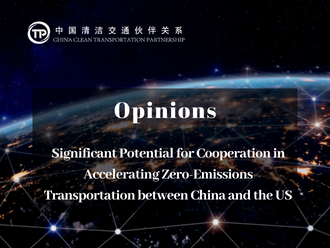
On October 19, 2022, CCTP successfully held its 20th workshop on "Zero Emission Transport in the US and China: Dynamics and Perspectives under New Context." During the workshop, experts from both domestic and international regions discussed policies related to the transition to zero-emissions transportation in the US, and its impact on the decarbonization process in China and the US. They also highlighted the importance of international cooperation in accelerating the deep decarbonization process in China and the US, as well as in the global transportation industry.
More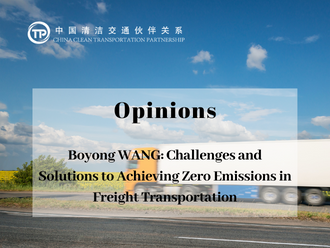
Boyong WANG, Director of Smart Freight Center (SFC) and Secretary-General of Zero Emission Freight Initiative (ZEFI), has discussed the challenges that the freight industry in China still faces to achieve zero-emission transformation. He highlights the systemic requirements that can support decarbonization actions, and a coordinated action among all stakeholders.
More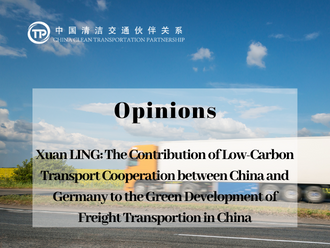
Xuan LING, the senior project consultant of Deutsche Gesellschaft für Internationale Zusammenarbeit, shared his insights on the contribution of low-carbon transport cooperation between China and Germany to the green development of freight transportation in China. He discussed the application of new energy urban logistics vehicles in pilot cities, which are still facing challenges such as limited operating mileage, high procurement costs, inadequate charging infrastructure, and insufficient parking spaces. According to Xuan Ling, addressing these issues requires the release of relevant policies and feasible measures by both national and local governments.
More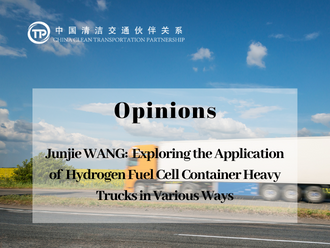
Junjie WANG, General Manager of Supplier Management at Maersk Greater China, discussed the potential of hydrogen energy heavy trucks in container transportation. He emphasized the importance of establishing an adequate number of hydrogen refueling stations to expand the application scenarios of these vehicles. Wang also stressed the need for enterprises to play a leading role in promoting the application of hydrogen fuel cell container heavy trucks, and to integrate and coordinate all parties in the industry chain.
More
Regarding domestic electric buses, Lulu XUE, director of transportation programs at WRI, believes that China's new energy bus industry will reach a watershed in 2020, shifting from being policy-oriented to market-oriented. With the withdrawal of purchase subsidies and the shift of subsidies from "cars" to "charging stations," as well as the gradual withdrawal of operating subsidies, vehicle manufacturers, bus operators, and charging operators will face different opportunities and challenges.
More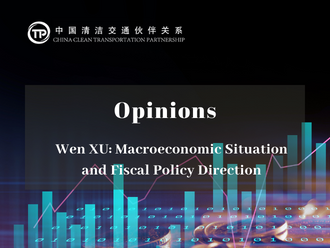
Wen XU, a researcher from the Chinese Academy of Fiscal Sciences, emphasized that the fiscal policy direction in 2022 is to maintain stability and make progress. One of the major areas of support under the fiscal policy is the promotion of green and low-carbon transformation in key industries.
More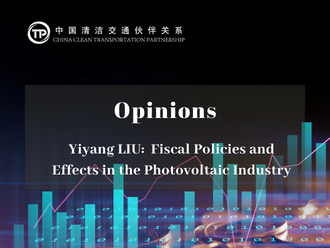
Yiyang LIU, Deputy Secretary-General of the China Photovoltaic Industry Association, stated that in recent years, the market scale of China's photovoltaic industry has continued to expand with the support of subsidy policies and national economic policies. Moreover, the industry has been witnessing a constant improvement in technological advancements, and the industrial structure has been continuously optimized.
More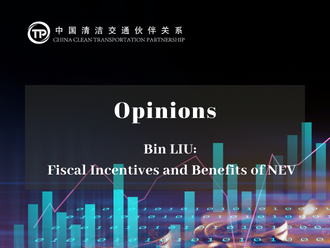
According to Bin Liu, Deputy Director of CATARC-AIPRS and Chief Expert of CATARC, the market scale and technical level of new energy vehicles have significantly increased with the support of policy systems such as purchase subsidies, tax incentives, and point management.
More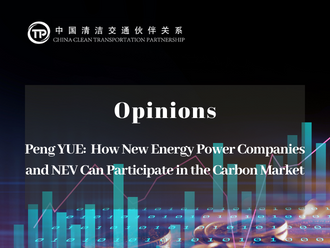
Peng YUE, the Assistant General Manager of the Beijing Environmental Exchange, emphasized the necessity of utilizing carbon trading to reduce transportation carbon emissions. However, there are still challenges that need to be addressed, such as defining the boundaries of transportation carbon emission accounting and developing effective carbon emission monitoring tools.
More
Meng CHEN, the deputy section chief of the Marine Design and Research Institute of China, shared his opinions on electric boat applications in practice. He believes that pure electric boats and hybrid boats have their own unique advantages and are suitable for different boat types and application scenarios. To promote the development of domestic electric boats, he recommends issuing industry policies and regulations and unifying charging and switching standards.
MoreCCTP is a non-governmental, non-profit, and voluntary platform, focusing on policy and technological innovations, summarizing and disseminating national and global practices for a net-zero transportation sector.